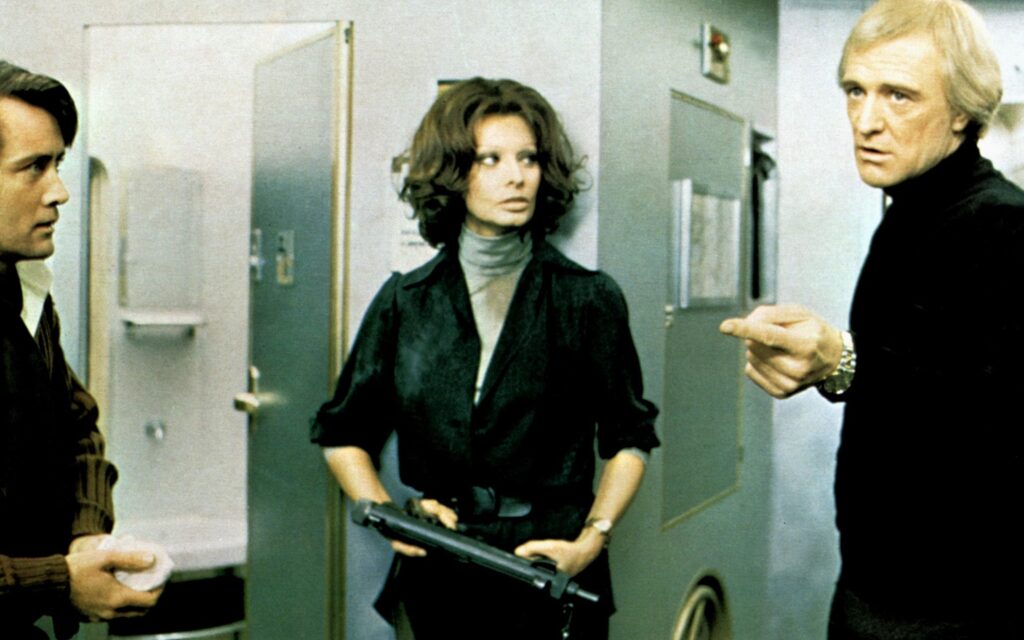
It was about twenty years ago that our local Hollywood Video went out of business. When they had their liquidation sale my father bought their copy of The Cassandra Crossing (1976) for me as a gift. I think I only watched that DVD twice before I either sold it off or donated it. With my father’s recent passing I picked The Cassandra Crossing up again on Blu Ray from the closing sale of Viva Video. Suffice it to say that The Cassandra Crossing means something to me.
Lew Grade produced George P. Cosmatos’ The Cassandra Crossing at the tail end of the disaster movie craze of the seventies. Like so many of the films of that particular sub-genre The Cassandra Crossing boasts a massive celebrity cast including Martin Sheen, Ava Gardner, O.J. Simpson, Lee Strasberg, Ray Lovelock, Lou Castel, and Ann Turkel with Richard Harris, Sophia Loren, and Burt Lancaster starring. Few of the performers in the film fail to give it their all which is, in my experience, somewhat unique within the genre. If a performance appears lackluster it’s largely due to how terribly written almost all of the dialogue is. Their are moments where watching The Cassandra Crossing one feels that one has accidentally changed the channel to an A-Team re-run (which is more enjoyable than some may realize).
The premise is relatively simple and exploits our collective fears of collective contagions, espionage, and government sanctioned murder. The film opens with terrorists attempting to bomb a U.S. military base in Paris, France. Only one terrorist escapes but in the process he exposes himself to the Black Death, the plague. Now a plague carrier, the terrorist boards a train, potentially contaminating everyone on board with one of the most lethal diseases in human history. So it’s up to Richard Harris to cure everyone on board before the train reaches an abandoned Nazi concentration camp in Poland, after crossing a rotten bridge (known as the Cassandra Crossing) , where Military man Burt Lancaster will have all of the passengers shot.
On a superficial level The Cassandra Crossing addresses issues pertaining to the legacy of the Nazis and the then ongoing Cold War with the Soviet Union. However George P. Cosmatos’ style is far more adept at scenes of action and violence than subtly political scenes of melodrama. The Cassandra Crossing has its thrilling moments and successfully builds suspense but it fails to take on a greater meaning beyond such superficial thrills.
If I were to rank my personal favorite disaster films of the seventies I’d probably put this uneven yet entertaining venture in the number two slot right behind Two-Minute Warning (1976). Both these films manage to quietly subvert their genre by leaving absent the patriotic rhetoric and blind flag waving of films like Airport (1970) and The Towering Inferno (1974).
